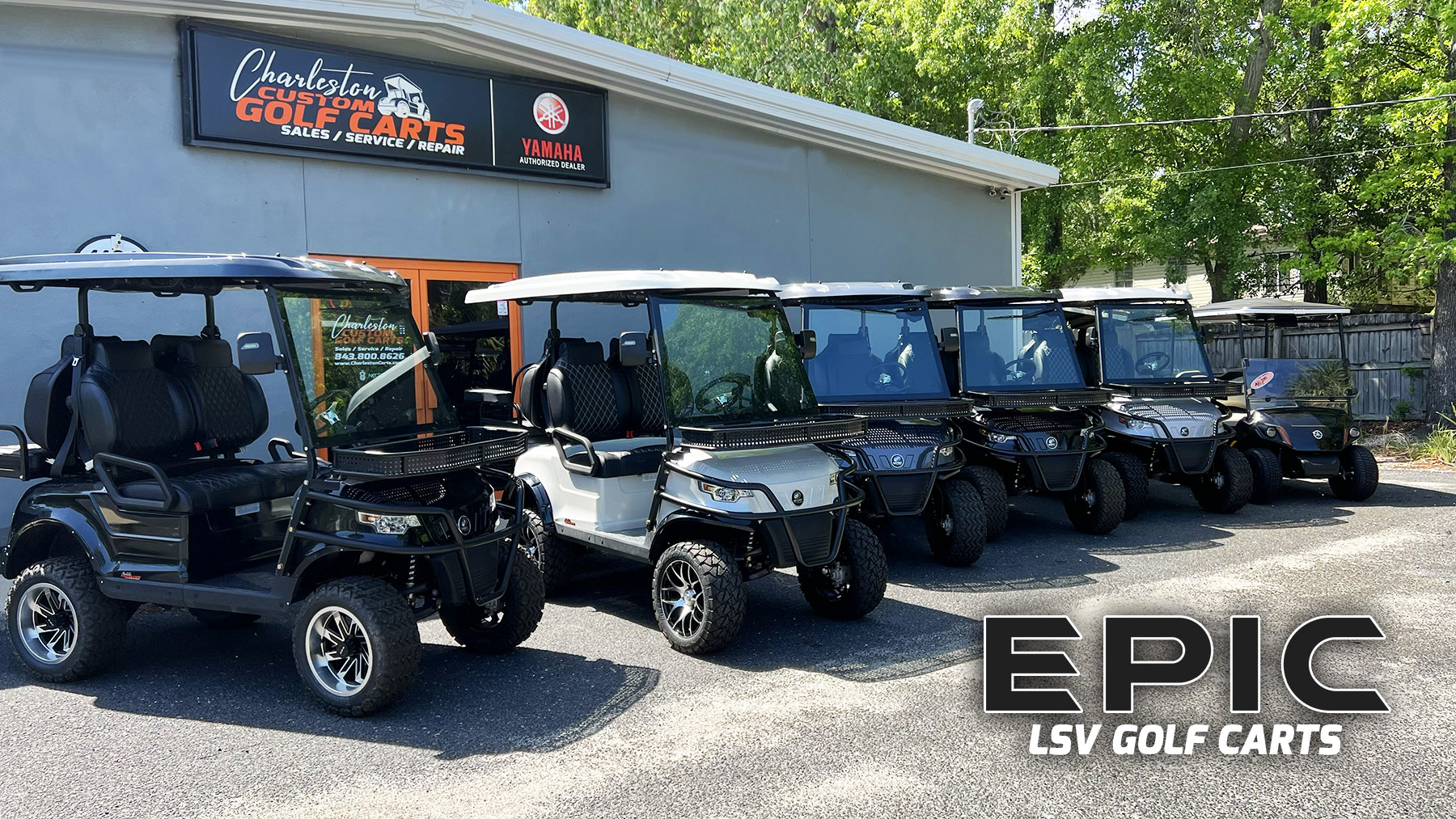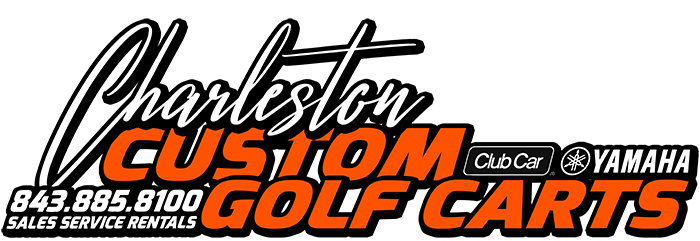About Low Speed Vehicles – LSV’s
Golf Cart and LSV (Low Speed Vehicle) Laws in South Carolina
The legal system is not a universal one; laws vary from country to country, state to state, and jurisdiction to jurisdiction. If you are a resident of South Carolina and are considering buying a golf cart or low speed vehicle (LSV) for bombing around the neighborhood, there are a number of state laws in place regarding how to do so safely and in adherence to the rules and regulations of the Department of Motor Vehicles and the Department of Transport. When it comes to LSV and golf cart laws in South Carolina, they are in place to protect the roadways, all vehicles traveling on them, and their drivers and passengers.

What is the difference between a Golf Cart and LSV?
At one time, the terms ‘golf carts’ and ‘LSVs’ were interchangeable, but there are currently several important distinctions between the two, established by state and federal laws and regulations.
Golf Carts
Golf carts emerged in the 1960s to transport people around golf courses. While they remained on the links for years, the American National Standards Institute (ANSI) defined carts as vehicles without a means of self-propulsion. In the early 20th century, the traditional carts became obsolete with the advent of internal combustion and electric motors. This represented a switch in the definition of a cart to a motorized vehicle.
In the 1980s and 1990s, American residential communities started to evolve into master-planned large-scale communities, especially in coastal areas. In these communities, carts become very popular vehicles for toting supplies and passengers around the neighborhood, or for traveling short distances as they were efficient, small, and environmentally friendly. As the communities started to be known as ‘golf-cart communities’, the trend of using carts for more places than just the links spread across the nation.
One of the strongest differences between the designation of a cart or a LSV is determined by the vehicle’s speed. Carts have a maximum speed of 20 mph, while LSVs can go up to 25 mph.
LSV’s
Low speed electric vehicles became very popular in the late 20th century as they were in line with environmental low-footprint trends. With the increasing popularity, the need to establish some laws regarding their use on public roadways emerged.
National Highway Traffic Safety Administration’s Designation of LSV
The National Highway Traffic Safety Administration (NHTSA) established the difference between what was designated an LSV and a neighborhood electric vehicle. This class of motor vehicle was distinct from the traditional golf carts.
LSVs are motor vehicles that are meant for short trips, social outings, and purposes mainly confined to planned communities, golf courses, or retirement communities. They have four wheels, have a top speed of more than 20 mph but no more than 25 mph, and they weigh less than 3,000 pounds.
To be Department of Transport and Department of Motor Vehicle approved, both LSVs and carts have to be equipped with a number of safety features such as windshields constructed from automotive safety glass, turn indicators, rearview mirrors, windshield wipers, headlights, taillights, brake lights, a parking brake, and a seat belt. For golf carts or LSVs that travel only up to 20 MPH, only local and state safety requirements need to be met.
As a class of motor vehicles designated by federal law, LSVs have to have a unique vehicle identification number (VIN) for insurance and registration purposes.
Golf Cart Laws in South Carolina
If you are wanting to drive a golf cart in South Carolina, there are specific laws that need to be followed. Only licensed drivers that are over the age of 16 are legally allowed to operate a cart. Even if someone under the age of 16 is accompanied by an adult, they are still not allowed to drive.
There is also a distinction with driving times as golf carts can only be driven during daylight hours. Golf carts are permitted to be driven within four miles of the address the cart is registered to, within four miles of an ingress or egress point to a gated community or on an island that is not accessible to regular automobiles.
Drivers cannot drink while operating a cart or have alcohol within reach, just like a regular motor vehicle. If an underage driver gets into an accident, their guardian could be criminally liable for child endangerment, as well as civilly liable for any damages the accident has caused.
To drive a cart on a public road, you will need to have a valid driver’s license, your DMV’s registration certificate, and a proof of liability insurance.
LSV Laws in South Carolina
Many of the laws regarding LSV are similar to golf carts, the main differences relating to the different speeds. At 20 MPH, a vehicle is only subject to local and state requirements. For vehicles reaching speeds of 20+ MPH, these are subject to regular motor vehicle laws and regulations under federal law.
LSVs driven on public roadways need to have a VIN, headlamps, signals, taillights, stop lights, reflex reflectors, exterior mirrors, parking brakes, windshield made from safety glass, and seat belts for every seat to be considered street legal. Neither golf carts nor LSVs are permitted to operate on a roadway with a speed limit of more than 35 MPH, but they are allowed to cross a highway or street with a posted speed limit of 35+ MPH.
LSVs also must be operated by a driver that is licensed and over the age of 16, and the same liability laws governing golf carts apply regarding under-age drivers and their guardians. No alcohol can be consumed while operating the vehicle, and the LSV has to be registered and insured with property damage liability and personal injury protection. The distance restrictions are the same for LSVs as carts.
When it comes to deciding between purchasing a golf cart or a LSV, the main distinction is in its use and speed. If the vehicle was designed to reach speeds of over 20 MPH, it is subject to regular motor vehicle regulations under federal law, but for slower uses, only state and local regulations apply. If you are planning on traveling for longer distances at a speed of more than 20 MPH, an LSV is the better choice; for use strictly around the neighborhood at 20 MPH or less, a cart will more than suffice. Regardless of what your final choice is, be sure to comply to any and all state or federal regulations that apply to your vehicle and its safe operation.
—
Contact us today to talk about your new custom cart build or if you already have a golf cart we can help you make it sound, run and look amazing. info@charlestoncarts.com or call us @ 843.885.8100


